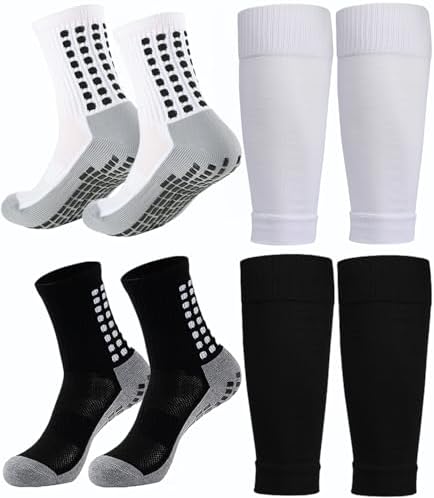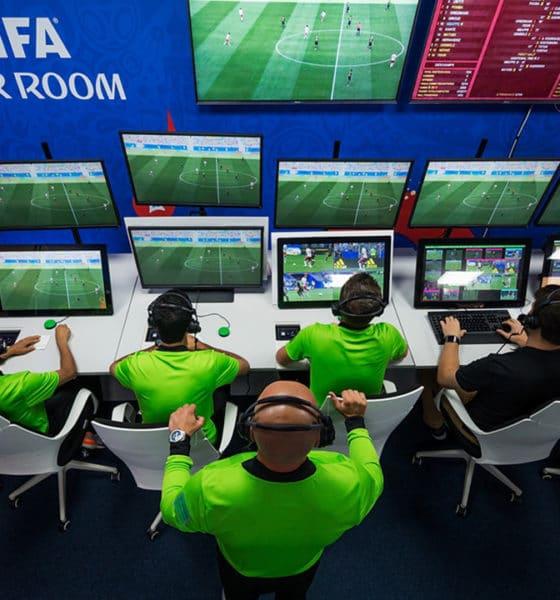In the ever-evolving landscape of football, few innovations have stirred as much debate and discussion as the Video Assistant Referee, commonly known as VAR. Introduced to La Liga in the 2018-2019 season, VAR promised to enhance fairness and accuracy in officiating, but its implementation has also sparked controversy and polarized opinions among players, coaches, and fans alike. As the Spanish top flight continues into the new season, the impact of VAR is undeniable, reshaping not only the way the game is played but also how it is indeed consumed by millions. This article delves into VAR’s transformative role in La Liga, examining its successes, challenges, and the broader implications for the future of football in Spain and beyond.
Table of Contents
- Impact of VAR on Match Outcomes and Fairness in La Liga
- The Evolution of VAR Technology and Its Implementation Challenges
- Fan Reactions to VAR: Embracing Change or Resisting Tradition
- Recommendations for Enhancing VAR Efficiency and Acceptance in La Liga
- Concluding Remarks
Impact of VAR on Match Outcomes and fairness in La Liga
The introduction of VAR in La liga has undeniably reshaped the landscape of match outcomes, as its technology allows referees to review pivotal decisions in real time. This system aims to minimize human error and ensure that the most crucial moments are handled with accuracy.However, it has also led to a spectrum of implications, where the fine line between right and wrong can spark controversy. Critics argue that while VAR enhances decision-making, it can disrupt the natural flow of the game, leading to an extended pause in action that can affect momentum. Key aspects of VAR’s impact include:
- Increased accuracy: VAR has proven effective in correcting clear and obvious errors regarding goals, penalties, and red cards.
- Controversy: The subjective nature of certain decisions still breeds debate among players and fans alike.
- Game Dynamics: interruptions for VAR reviews can alter player strategies and overall game momentum.
The quest for fairness has seen VAR become a focal point in discussions about the integrity of matches. With the technology now standard in major competitions, it raises questions about its consistency and the human element still involved in interpreting video evidence. Several teams have noted disparities in VAR submission, questioning its impartiality and raising concerns about its effect on match psychology. A brief analysis of VAR-related incidents reveals:
| Match | VAR Decisions | Outcomes |
|---|---|---|
| FC Barcelona vs. Real Madrid | 1 Goal Overturned | Draw |
| Atletico Madrid vs. Valencia | 1 Penalty Awarded | Atletico Wins |
| Sevilla vs. Betis | 1 Red Card issued | Sevilla Wins |
This table epitomizes the dual nature of VAR’s influence—highlighting its potential to shift the tide of matches while simultaneously inviting scrutiny over the fairness of its implementation. VAR remains a contentious but critical component of modern football in La Liga, demonstrating the continuous evolution of the sport.
The Evolution of VAR Technology and Its Implementation Challenges
The journey of VAR (Video Assistant Referee) technology began with a vision to enhance the integrity of the game. Initially trialed in lower leagues and selected international tournaments, its rapid evolution saw La Liga integrate VAR in the 2018-2019 season, transforming the dynamics of Spanish football. This technology primarily aims to assist referees in identifying key incidents within matches, notably goals, penalty decisions, and cases of mistaken identity. The impact has been profound, contributing to a sharper focus on fairness in officiating, although it has not been without its hurdles.
however, implementing VAR has presented notable challenges. technical glitches, communication breakdowns, and inconsistent application of rules have sparked debate among fans, players, and officials. Some key factors complicating its integration include:
- The time taken for reviews: delays can disrupt game flow, causing frustration among players and spectators alike.
- Subjectivity in decisions: Despite technological advancement, interpretation remains a human element, which can lead to different conclusions.
- Fan engagement issues: The opaque nature of the decision-making process frequently enough leaves fans in the dark, diminishing their match experience.
| Challenge | Impact |
|---|---|
| Technical Glitches | Can lead to incorrect decisions or delays. |
| Communication Issues | May create confusion among players and viewers. |
| Subjective Interpretations | Can lead to varying outcomes and dissatisfaction. |
Fan Reactions to VAR: Embracing Change or Resisting Tradition
The introduction of VAR in La Liga has sparked a whirlwind of emotions among fans, with reactions reflecting a mix of hope and skepticism. Many supporters view this technological advancement as a necessary evolution, bringing fairness and accuracy to a game that has ofen been marred by controversial decisions. They appreciate how VAR can potentially eliminate glaring errors, ensuring that the best teams prevail based on merit rather than officiating mistakes. Fans have taken to social media to express their support, highlighting the potential benefits of VAR:
- Increased accuracy: Fans beleive that important moments will be judged fairly.
- Game Integrity: VAR is seen as a tool to uphold the spirit of the game.
- Support for Teams: Clubs facing unjust decisions are likely to benefit.
However,not all fans are embracing this change. A meaningful faction yearns for the conventional feel of the game and argues that VAR disrupts the flow of matches. They believe that the human element of officiating is an integral part of football’s charm and that technology could lead to over-reliance on decision-making from a distance.concerns about prolonged delays and the inconsistency of VAR interpretations have fueled the resistance.Common sentiments among these fans include:
- Loss of Emotion: celebrations are often halted while awaiting VAR reviews.
- Confusion over Rules: The intricacies of VAR decisions can leave fans puzzled.
- Mistrust in Technology: Some feel that technology can be fallible.
Recommendations for Enhancing VAR Efficiency and Acceptance in La Liga
To elevate the efficiency and acceptance of VAR within La Liga, a multifaceted approach is essential.Investing in advanced technology is critical; implementing top-tier video equipment and high-speed internet connectivity can substantially reduce the time taken for reviews. Furthermore, enhancing referee training programs to better familiarize officials with the technology can help streamline processes on the field. Another pivotal recommendation includes fostering better communication strategies, both on the pitch and to the viewing public, ensuring that fans and players understand the decision-making process behind VAR calls.
Moreover, establishing a dedicated VAR openness initiative could promote trust and acceptance among fans and stakeholders. This could involve creating an online platform that offers real-time insights into VAR decisions, along with access to archived footage and contextual analysis from experienced officials. Additionally, engaging fans through Q&A sessions or forums with referees could demystify the VAR process and alleviate frustrations. By combining technology, education, and clear communication, La liga can enhance the perception of VAR as not just a tool, but a crucial ally in the pursuit of fair play.
Concluding Remarks
VAR’s introduction to la Liga has undeniably transformed the landscape of Spanish football, ushering in a new era of technology-driven decision-making. While the system has faced criticism and growing pains, its role in enhancing the integrity of the game is becoming increasingly apparent. By reducing controversial calls and promoting a fairer playing surroundings, VAR is not just a tool for referees but a catalyst for a more clear and accountable sport. As La Liga continues to evolve, the challenge will lie in refining the system to balance its benefits with the pacing and flow of the game. For fans, players, and officials alike, VAR represents a significant leap forward, promising a future where justice is served on the pitch—one decision at a time.





